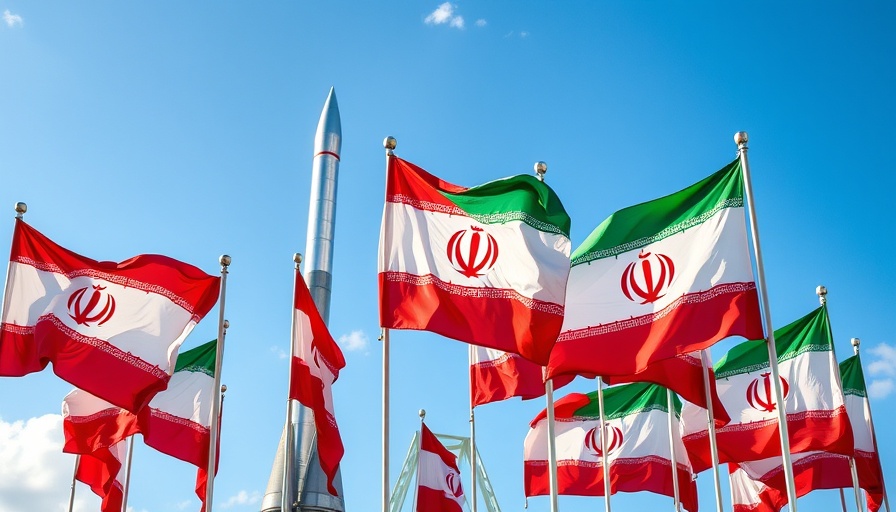
Understanding the Shift: Western Nations Sanction Israeli Ministers
In a historic move, several Western nations—namely the UK, Canada, Australia, New Zealand, and Norway—have officially issued sanctions against two Israeli ministers. This unprecedented action reflects deepening concerns over the actions of these ministers, Itamar Ben-Gvir and Bezalel Smotrich, who have been accused of inciting extreme violence and violating Palestinian human rights. Such sanctions signal a pivotal moment in diplomatic relations regarding Middle Eastern affairs, especially as global awareness rises about the complexities in this region.
The Growing Concern for Human Rights
This significant development has sparked discussions about the need for accountability over human rights violations. The target of these sanctions, Ben-Gvir and Smotrich, hold prominent positions within the Israeli government, making their actions particularly noteworthy. As they continue to promote policies believed to exacerbate violence in the already volatile region, the international community is increasingly advocating for the rights of the Palestinian people.
The Reaction from Israeli Officials
In response, Israeli finance minister Bezalel Smotrich made headlines by threatening to halt tax revenue transfers to the Palestinian Authority. This reaction only intensifies scrutiny on the Israeli government’s stance toward Palestinians and underscores the escalating tensions between Israel and various Western nations. The implications of such financial maneuvers could have a devastating effect on services reliant on these funds.
Economic Implications of Sanctions
The imposition of sanctions sets a precedent for economic measures being utilized in foreign policy. For those who advocate for social justice and humanitarian efforts, understanding these economic implications is crucial. Sanctions can lead to both immediate and long-term effects: they may deter certain actions but can also deepen suffering among the general population—a reality that advocates must grapple with as they campaign for equality and peace in the region.
Future Predictions: What Lies Ahead?
Looking ahead, these sanctions may pave the way for further actions within the international community aimed at holding governments accountable. As global awareness of these issues increases, continued advocacy is essential. It raises questions about what diplomatic solutions might emerge from these sanctions and whether they will foster improved conditions for the Palestinian people or further complicate an already tense situation.
The Role of Faith in Advocacy
As mission-minded individuals and social justice advocates navigate these complex issues, it’s important to reflect on the role faith plays in advocacy. Many Christians around the world see their faith as calling them to promote justice and compassion, particularly for the persecuted church and oppressed peoples. This can inspire and guide their efforts toward advocating for a peaceful resolution to the Israeli-Palestinian conflict.
A Call for Compassion and Action
This is a moment for compassion, reflection, and action. As individuals engaged in advocacy for social justice and humanitarian concerns, pondering the implications of international sanctions reflects deeply on our capacity for influencing change. Understanding the nuances of these issues can lead to more effective advocacy, ensuring that the voices of those affected are amplified and heard.
What Can You Do?
For those watching and concerned about these developments, it is vital to stay informed and engaged. Support organizations that advocate for humanitarian efforts in the region. Participate in interfaith dialogues that promote understanding and cooperation. By doing so, you align yourself with a broader movement aiming for justice and peace for all. Remember, every small action contributes to a larger dialogue that has the potential to inspire change.
 Add Row
Add Row  Add
Add 








 Add Row
Add Row  Add
Add 

Write A Comment